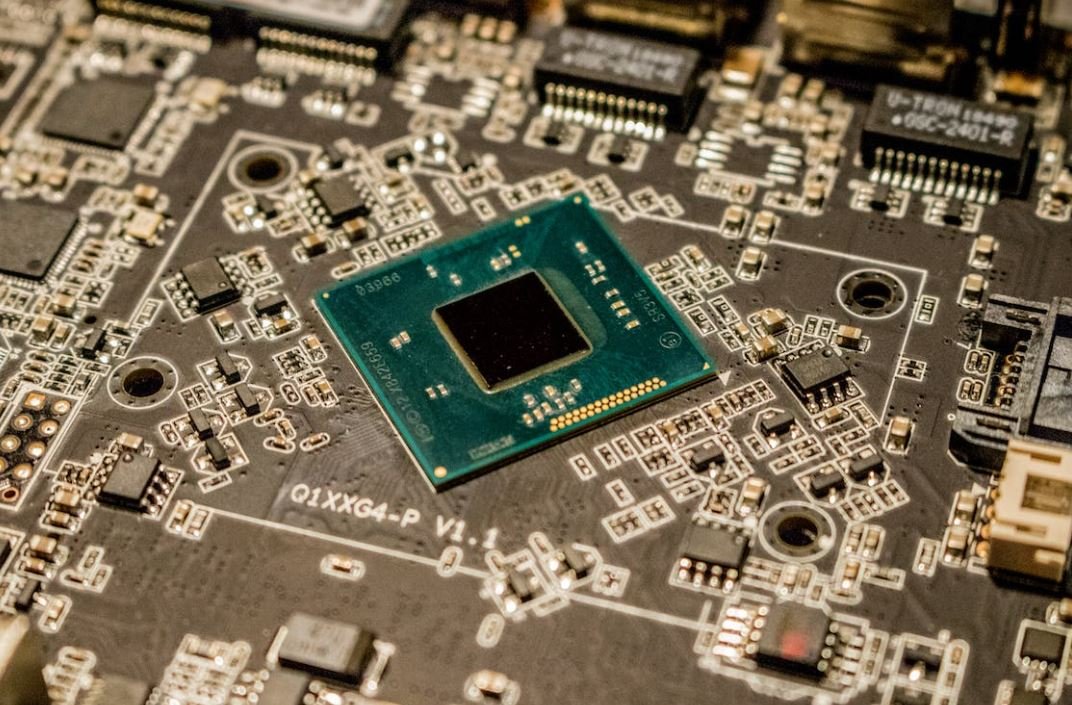Is OpenAI Open Source?
OpenAI is a research organization that aims to promote and develop friendly AI for the benefit of humanity. As a highly influential entity in the field of artificial intelligence, many people wonder whether OpenAI’s projects and models are open source.
Key Takeaways
- OpenAI is committed to providing open source resources to support AI research and promote collaboration.
- While OpenAI releases many of their projects and models under open source licenses, not all of their developments are open source.
- The decision to make a project or model open source depends on factors such as safety concerns and strategic considerations.
The Open Source Philosophy
Open source software is a term that refers to programs whose source code is freely available for anyone to view, use, modify, and distribute. It is built on the principles of collaboration, transparency, and community-driven development. **OpenAI recognizes the value of open source in accelerating innovation and encouraging collaboration in the AI field.**
**However, it is important to note that not all of OpenAI’s projects are open source.** While OpenAI has released a significant amount of their work publicly, they exercise discretion in deciding which projects should be made open source. This decision depends on various factors, including safety and ethical considerations.
OpenAI’s Open Source Projects
OpenAI has released several projects and models under open source licenses, demonstrating their commitment to the open source community. One such example is OpenAI Gym, an open source Python library for developing and comparing reinforcement learning algorithms. Additionally, OpenAI has published code for various machine learning models, allowing researchers and developers to build upon and improve the models for their own purposes.
**An interesting aspect of OpenAI’s approach to open sourcing models is the release of “pre-trained” models. These models are trained on massive datasets and can be fine-tuned by users to adapt to specific tasks, saving significant time and resources in training from scratch.**
OpenAI’s Non-Open Source Developments
While OpenAI strives to create a culture of openness and collaboration, certain projects are not released as open source. The decision to keep a project closed source can be influenced by several factors, including safety concerns. Some AI models developed by OpenAI have the potential to be misused, leading to the decision to restrict access to them. **OpenAI is mindful of potential risks associated with certain AI technologies and takes precautions to prevent malicious exploitation.**
OpenAI’s Initiatives for Collaboration
Beyond open sourcing their projects and models, OpenAI actively seeks to collaborate with external individuals and organizations. Joint research projects, partnerships, and even integration of external contributions are all part of OpenAI’s endeavors to foster collaboration and accelerate AI development.
**An interesting example is OpenAI’s “OpenAI Fellows” program, which offers aspiring researchers an opportunity to work closely with OpenAI in areas like reinforcement learning and natural language processing. This program facilitates knowledge exchange and promotes collaboration between OpenAI and the wider community.**
OpenAI’s Commitment and Future
While not all of OpenAI’s projects are open source, the organization has demonstrated a strong commitment to open source principles and collaboration within the AI community. By sharing resources, publishing research papers, and engaging in partnerships, OpenAI continues to contribute to the advancement of AI in an open and collaborative manner.
With a focus on providing beneficial AI technology for the benefit of humanity, OpenAI’s commitment to open source and collaboration remains an essential aspect of their mission. **Through fostering innovation and promoting transparency, OpenAI continues to shape the future of AI in a responsible and inclusive manner.**

Common Misconceptions
OpenAI is Open Source
One common misconception about OpenAI is that it is completely open source. While OpenAI has made certain tools and frameworks available to the public, not all of its technologies and research are open source. This means that developers cannot access and modify every aspect of OpenAI’s algorithms and models.
- OpenAI has released some software frameworks, such as OpenAI Gym, as open source.
- Not all of OpenAI’s models and algorithms are publicly available for modification.
- OpenAI maintains some level of control over its proprietary technologies.
OpenAI’s GPT Models are Open Source
Another common misconception is that OpenAI’s GPT (Generative Pre-trained Transformer) models are open source. While OpenAI has released some versions of GPT, such as GPT-2 and GPT-3, for research and experimentation, they are not fully open source.
- GPT models are made available through licenses that impose certain usage restrictions.
- There may be limitations on commercial or for-profit use of GPT models.
- OpenAI still maintains control over the development and deployment of GPT models.
Anybody Can Access OpenAI’s Technologies
Some people might believe that anyone can readily access OpenAI‘s cutting-edge technologies. However, OpenAI’s technologies often involve complex infrastructure, high computational resources, and access is not always freely available to everyone.
- Access to OpenAI’s technologies may require specific qualifications or collaboration agreements.
- Availability of OpenAI’s technologies might be limited to certain research institutions or organizations.
- Commercial usage of OpenAI’s technologies may require additional licensing or permissions.
OpenAI’s AI Systems Can Solve Any Problem
There is a common misconception that OpenAI’s AI systems can solve any problem thrown at them. While OpenAI’s systems have demonstrated impressive capabilities across various domains, they have their limitations and may fail to solve certain types of problems effectively.
- OpenAI’s models might struggle with certain complex or specialized tasks.
- AI systems may face challenges in understanding context, sarcasm, or nuanced language.
- Ethical considerations might restrict the application of AI systems in certain domains.
OpenAI’s Models Are Fully Autonomous
Lastly, some people mistakenly assume that OpenAI’s models are fully autonomous and operate independently. However, OpenAI’s models are still primarily guided and supervised by human developers, and they require human intervention for training, fine-tuning, and quality assurance.
- OpenAI’s models are the result of a combined effort involving human expertise and machine learning.
- Human oversight is necessary to manage potential biases or ethical concerns in model outputs.
- Models need continuous human intervention for monitoring and improving their performance.

OpenAI Funding Sources
OpenAI is a research organization with a mission to ensure that artificial general intelligence (AGI) benefits all of humanity. The table below illustrates the funding sources for OpenAI:
| Year | Investor | Amount |
|---|---|---|
| 2015 | Elon Musk | $10 million |
| 2015 | Sam Altman | $1 million |
| 2018 | Musk Foundation | $1 billion |
| 2019 | Silver Lake | $600 million |
| 2020 | Microsoft | $1 billion |
OpenAI Publications by Year
OpenAI actively publishes its research findings in various fields. The following table provides an overview of the number of publications by year:
| Year | Number of Publications |
|---|---|
| 2015 | 12 |
| 2016 | 24 |
| 2017 | 35 |
| 2018 | 47 |
| 2019 | 64 |
| 2020 | 51 |
OpenAI’s AGI Development Timeline
The table provides a glimpse of the anticipated timeline for the development of artificial general intelligence (AGI) by OpenAI:
| Year | Progress |
|---|---|
| 2015 | Established OpenAI as a research organization |
| 2017 | Released the OpenAI Gym toolkit for reinforcement learning |
| 2018 | Introduced OpenAI Five, an AI system that played Dota 2 at a professional level |
| 2020 | Released GPT-3, a language model with 175 billion parameters |
| 2025 | Targeted date for AGI development |
OpenAI Research Programs
OpenAI is involved in diverse research areas. The table showcases some of OpenAI’s research programs and their focus:
| Research Program | Focus Area |
|---|---|
| AI Safety | Developing robust and safe AI systems |
| Reinforcement Learning | Advancing RL algorithms and their applications |
| Language Models | Enhancing natural language understanding and generation |
| Robotics | Exploring AI in the context of autonomous robotic systems |
| Multi-Agent Systems | Investigating interactions between multiple AI agents |
OpenAI’s Research Partners
OpenAI collaborates with various institutions and organizations. The following table highlights some research partners and their affiliations:
| Research Partner | Affiliation |
|---|---|
| Stanford University | Stanford, California, USA |
| Massachusetts Institute of Technology (MIT) | Cambridge, Massachusetts, USA |
| University of Oxford | Oxford, United Kingdom |
| Google DeepMind | London, United Kingdom |
| Carnegie Mellon University (CMU) | Pittsburgh, Pennsylvania, USA |
OpenAI’s Impact on Natural Language Processing
OpenAI’s research in natural language processing (NLP) has contributed significantly to the field. The table showcases the impact of OpenAI’s language models:
| Language Model | Noteworthy Achievement |
|---|---|
| GPT-2 | Generated coherent and contextually relevant text passages |
| GPT-3 | Demonstrated capabilities for various language tasks (translation, summarization, conversation, etc.) |
| InstructGPT | Efficiently answered user prompts and followed instructions |
| Codex | Provided code generation and completion for multiple programming languages |
| ChatGPT | Engaged in interactive conversations and handled user queries effectively |
OpenAI’s Commitment to Open Source
OpenAI actively contributes to the open-source community. The table below highlights some significant open-source projects by OpenAI:
| Project | Description |
|---|---|
| OpenAI Gym | A toolkit for developing and comparing reinforcement learning algorithms |
| OpenAI Baselines | Implementations of commonly-used reinforcement learning algorithms with high-quality codebase |
| Spinning Up | An educational resource providing tutorials and code examples for reinforcement learning |
| OpenAI Retro | A platform for exploring, modifying, and training AI models on retro video games |
| OpenAI RoboSumo | A simulated environment for developing multi-agent reinforcement learning algorithms |
OpenAI’s Co-Authors in Publications
OpenAI researchers often collaborate with experts in the field. The following table showcases some notable co-authors of OpenAI’s publications:
| Co-Author | Affiliation |
|---|---|
| Ilya Sutskever | OpenAI |
| Wojciech Zaremba | OpenAI |
| Dzmitry Bahdanau | University of Montreal |
| John Schulman | OpenAI |
| Pieter Abbeel | University of California, Berkeley |
OpenAI actively pursues advancements in AI research while emphasizing the importance of collaboration and open-source contributions. Through strategic funding, extensive research programs, and partnerships, OpenAI has made substantial progress in developing AGI. By leveraging natural language processing and sharing knowledge with the open-source community, OpenAI continues to shape the future of artificial intelligence.
Frequently Asked Questions
Is OpenAI’s software open source?
OpenAI’s software is not fully open source. While some projects and components are made available on GitHub as open source, the complete set of technologies developed by OpenAI is not open source.
Which OpenAI projects are open source?
OpenAI has released several projects as open source, such as OpenAI Gym, a popular reinforcement learning toolkit, and TensorFlow Agents, a library for developing reinforcement learning agents using TensorFlow. The availability of open source projects may vary over time.
Can I contribute to OpenAI’s open source projects?
Yes, OpenAI welcomes community contributions to its open source projects. You can contribute to these projects by forking the respective repositories on GitHub and submitting pull requests with proposed changes.
Can I use OpenAI’s open source projects for commercial purposes?
The specific licenses for OpenAI’s open source projects may vary, so it’s important to review the license of each project before using it for commercial purposes. Some projects may have permissive licenses that allow commercial use, while others may have more restrictive licenses.
Are OpenAI’s language models available as open source?
No, OpenAI’s language models, such as GPT-3, are not available as open source. These models are not released under open source licenses and require proper licensing and collaboration agreements to access and use them.
Can I create derivative works based on OpenAI’s open source projects?
Whether you can create derivative works based on OpenAI’s open source projects depends on the specific license of each project. Some projects may allow derivative works, while others may have restrictions. It’s important to review the license of each project to understand the terms and conditions.
What are the benefits of open source projects by OpenAI?
The open source projects released by OpenAI provide several benefits. They allow researchers and developers to gain insights into OpenAI’s methodologies, experiment with cutting-edge technologies, and contribute to the advancement of machine learning and AI. Open source projects also foster collaboration and knowledge sharing within the community.
Where can I find OpenAI’s open source projects?
OpenAI’s open source projects can be found on their official GitHub page at https://github.com/openai. This platform hosts various repositories containing different projects and libraries.
Does using OpenAI’s open source projects guarantee access to their proprietary technologies?
No, using OpenAI’s open source projects does not grant access to their proprietary technologies. The open source projects provide an opportunity to work with specific components or tools developed by OpenAI, but accessing their complete set of technologies typically requires separate agreements and licensing.
Can I use OpenAI’s open source projects for personal projects?
Yes, in most cases, you can use OpenAI’s open source projects for personal projects. However, you should review the license of each project to understand any specific requirements or restrictions regarding personal use.




